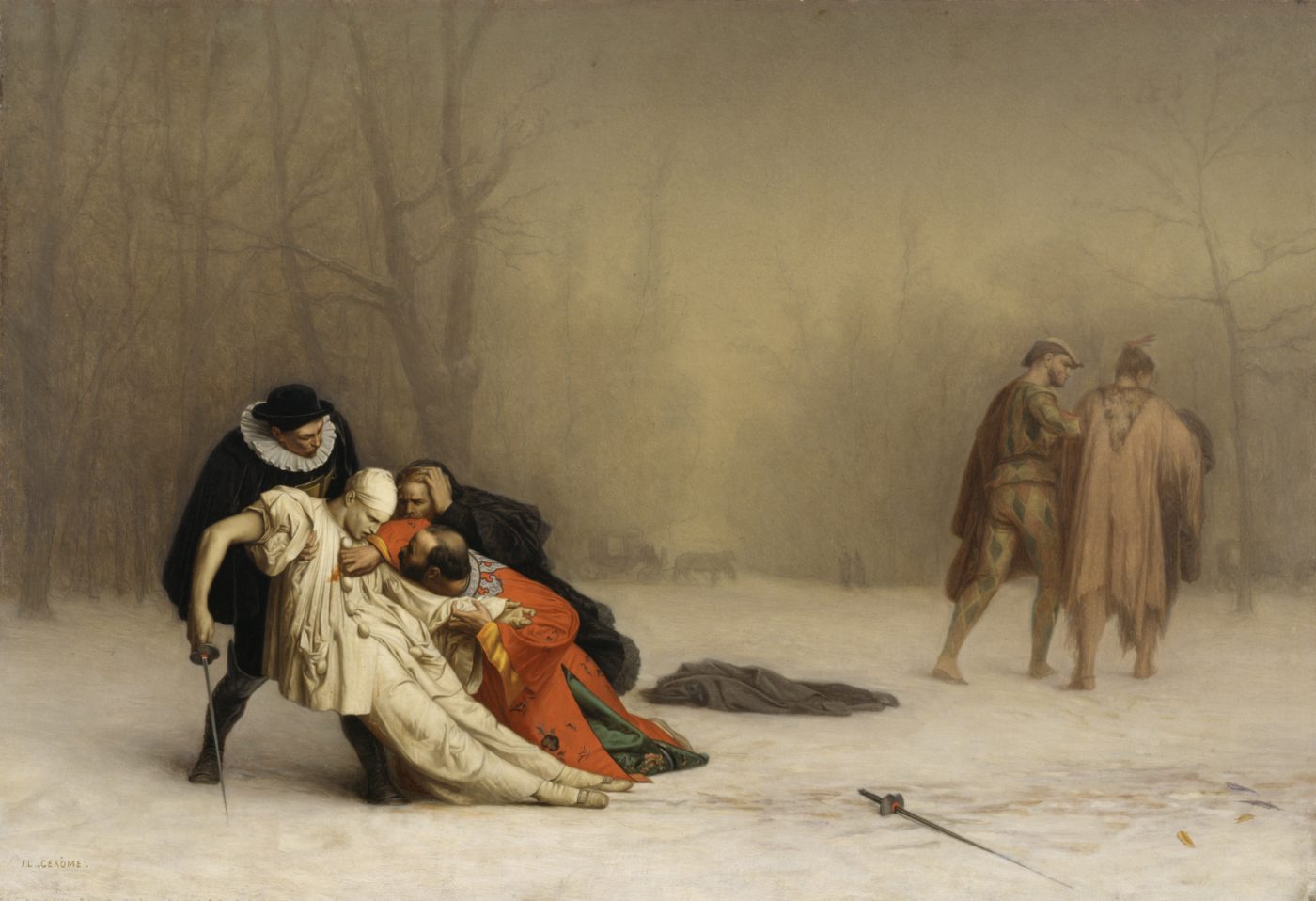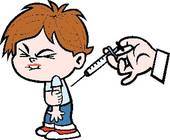When My Turn Comes ~ A Short Story by Allen Kopp
In the air is the smell of rubbing alcohol, or, as it is more commonly known, “shot medicine.” It’s shot day and Miss Goldsmith, the school nurse—along with her huge female assistant with bulging arms, affectionately referred to as “the Angel of Death”—is alone in the narrow nurse’s room on the third floor with the door, usually opened, now closed. The ghoulish pair requires solitude while they lay out on the table the cotton balls, syringes, frightening-looking bottles of serum, and hundreds of needles required to vaccinate the students of Harmony Hill elementary school against the dreaded scourge of disease. When they are ready to begin, the door will re-open and the Angel of Death will issue forth with a bunch of the blue “shot cards” in her dimpled hands to collect the first lucky recipients of the largess of the state health department. We wait in our stifling classroom, pretending to be paying attention to our social studies lesson, but instead consumed with worry about when the Angel of Death will appear at our door and begin calling out the names of those of us who must submit to the needle.
Miss Joyce, our teacher, pauses in midsentence when there is a knock at the door. We all sit bolt upright, knowing our moment has come. The door opens and there is the Angel of Death proffering her stack of blue cards as she steps into the room. She has a satisfied grin on her lipsticked mouth as Miss Joyce gives her the go-ahead and she begins calling out the names, in seemingly random—rather than alphabetical—order: Eddie Fuller, Ramona Peabody, Roy Babb, Emory Dalton, Felicity Fleming, Curtis Welch, Norman Hardy, Betty Ray, Travis Fletcher, George Abney…
By the time my name is called, I have a lump of dread in my stomach, but I stand up and walk jauntily to the front of the room and take my blue shot card from the Angel of Death with a smile on my face as if getting stuck in the arm with a needle is the one thing in the world I’m longing to do today.
When all the names have been called (about half in the room) and we are all lined up ready to go, the Angel of Death leads us out of the room, down the long hallway and up the stairs. We don’t make a sound except for the clomping of our shoes on the old wooden floors.
While we are standing in the nurse’s room in a line that goes all the way out into the hallway, Wanda Gilroy, who I don’t know very well because she’s in another grade, wets her pants and begins wailing. One of the older girls leads her away by the arm—as if wetting her pants has somehow affected her ability to see—while the Angel of Death puts some paper towels on the floor to soak up the urine so the rest of us won’t have to walk through it. Wanda might have thought that wetting her pants would get her out of getting the shot, but she’ll have to get back in line as soon as she dries herself off.
I’m about twenty people back, and the line seems to be moving very slow (is this going to take all day?), when there’s a commotion at the front of the line. Leroy Meinhardt is putting up a fuss just as Miss Goldsmith is wiping his stringy little arm with the alcohol-soaked cotton ball. It seems that Leroy has decided at the very last moment that he can’t and won’t tolerate getting a shot today. He keeps saying, “No! No! No!” As he tries to pull away, Miss Goldsmith holds him and says, “There, now, this isn’t going to hurt at all.” She finishes swabbing his arm and when Leroy sees the syringe she’s holding in her hand, he breaks away. He dives under the little hospital bed against the wall, but he’s no match for the Angel of Death. She grabs him by the ankles and pulls him out easily on the slick tile floor. She jerks his little ass to a standing position and sets him down in easy reach of Miss Goldsmith with her needle.
“You’re making this much harder than it needs to be,” Miss Goldsmith says grimly. “I’m just as determined to give it as you are not to get it!”
Leroy appears to be about to acquiesce; he is holding still but making little sobbing sounds. Miss Goldsmith holds his arm in her vise-like grip and swabs it again. When she has the needle not more than three inches from his arm, he breaks away again but the Angel of Death grabs him before he has a chance to get very far. She sits down and pulls him toward her and holds him between her massive thighs. She puts her arms around his upper body as if she is a bear and, in this way, with her arms and legs, holds him immobile. He is making “yah-yah,” sounds, but he can’t move so he is essentially helpless, eyes shut tight, holding his breath and gritting his teeth.
Miss Goldsmith grabs the flesh of his upper arm in her left hand and with the other hand sticks the needle in. She pushes the plunger on the syringe, emptying the life-saving serum into his arm, and withdraws the needle.
Leroy grows limp; his head lolls forward on his shoulders. The Angel of Death continues to hold him because it seems he will slump to the floor if she doesn’t, but in a few seconds he opens his eyes and looks around as if he is just coming out of a trance. The room is absolutely still, with everybody watching him. When he realizes he is half-sitting on the Angel of Death’s lap, he pushes away and stands up and smiles broadly. Everybody in the room claps and cheers, jubilant that the ordeal is over and has ended in success.
When my turn comes, I look out the window at the sky and let my body go as limp as I can to still remain standing. I don’t look at the needle going into my arm and I won’t show that I feel it. I believe, even at my young age, in the principle of simple human dignity. I would never want anybody to see me making a scene, crying and screaming, the way Leroy Meinhardt does. He will always be remembered, even decades later, as a whiny crybaby and a person to be avoided.
I get my lemon sucker, the kind with the soft loop—so if you fall flat on your face while you’re eating it you won’t push it out the backside of your head—and go back downstairs to Miss Joyce’s room. I’m not supposed to eat the sucker until recess, so I put it in my shirt pocket for safe keeping. I’m happy to have the shot over with. I don’t see what all the fuss was about; it didn’t hurt at all. I’ll try to remember that for the next time, but I probably won’t.
Copyright © 2011 by Allen Kopp

